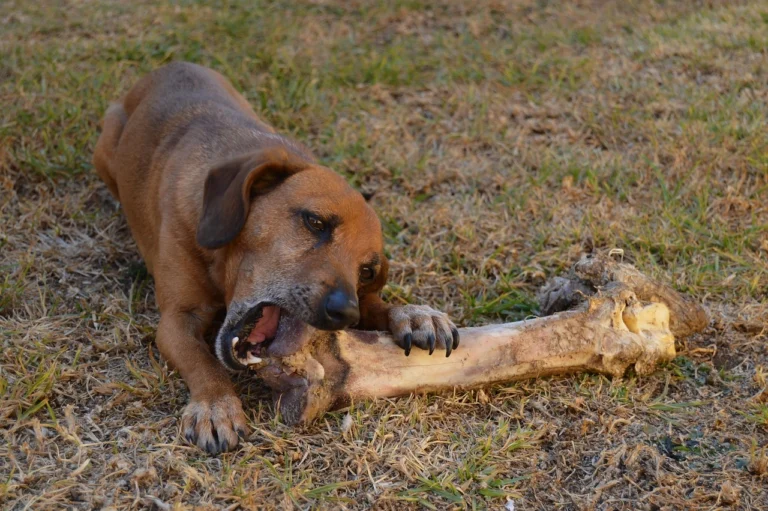Can Dogs Eat Asparagus? Healthy Truth Every Owner Must Know
As a devoted dog parent, I remember the first time I wondered about sharing my fresh asparagus with my furry companion. Many pet owners wonder which human foods are safe for dogs. It’s important to know if dogs can eat asparagus for their health.
Pet nutrition has changed a lot in recent years. Dog owners are looking for more than just kibble for their pets. Asparagus, being a nutritious vegetable, has become a topic of interest for many. This guide will help you understand if asparagus is good for your dog’s diet.
Dogs and asparagus might seem like an odd pair, but it’s important to know the benefits and risks. We’ll explore how to safely add asparagus to your dog’s meals.
Table of Contents
Key Takeaways
- Asparagus can be safe for dogs when prepared correctly
- Not all dogs will tolerate asparagus equally
- Proper preparation is essential for canine consumption
- Moderation is key when introducing any new food
- Consult with a veterinarian before making significant dietary changes
The Truth About Dogs and Asparagus: A Complete Guide
Knowing about asparagus and pet nutrition helps you choose better for your dog. Asparagus is full of nutrients and might interest you in adding variety to your dog’s meals.
Exploring asparagus for dogs means learning about its unique traits and nutritional value. These green spears are more than a simple side dish. They could be a smart choice for your pet’s diet.
Understanding Asparagus as a Vegetable
Asparagus is a perennial plant in the lily family. It grows well in temperate climates and is grown all over the world. There are different types, like green, white, and purple.
- Grows from underground crowns
- Harvested in spring and early summer
- Requires specific soil and climate conditions
Nutritional Profile of Asparagus
Experts say asparagus is a low-calorie veggie full of important nutrients. It’s a great choice for dog owners looking for new foods.
| Nutrient | Amount per 100g |
|---|---|
| Calories | 20 |
| Protein | 2.2g |
| Fiber | 2.1g |
| Vitamin K | 41.6 mcg |
Asparagus has folate, vitamins A, C, E, and K. These help support health when given in small amounts to dogs.
Can Dogs Eat Asparagus Safely?
When thinking about whether dogs can eat asparagus, it’s important to know the safety rules. Dogs can have asparagus in small amounts, but there are important steps to take for their health.
How well dogs can digest asparagus depends on how it’s prepared. Raw asparagus can be hard for dogs to chew and might upset their stomach. It’s crucial to prepare asparagus the right way for dogs.
- Cut asparagus into small, bite-sized pieces
- Steam or boil without added seasonings
- Remove tough, fibrous parts
- Serve in small quantities
There are risks to consider when giving asparagus to dogs. The tough texture can be a choking hazard, especially for small dogs. Some dogs might get a little upset in their stomach if they eat too much or too fast.
| Asparagus Safety Factors | Recommendations |
|---|---|
| Preparation | Soft, small pieces |
| Quantity | 10% of daily diet maximum |
| Frequency | Occasional treat |
Always talk to your vet before adding new foods to your dog’s diet. Each dog is different and might react differently to asparagus.
Health Benefits of Asparagus for Dogs
Discovering the nutritional advantages of asparagus for your dog can change how you feed them. Asparagus brings many health benefits that support your dog’s well-being when given in small amounts.
Looking into asparagus’s nutritional profile shows why it’s good for dogs. It’s packed with nutrients that can enhance your dog’s diet.
Essential Vitamins and Minerals
Asparagus is a nutritional powerhouse for dogs, offering key nutrients:
- Vitamin K: Supports blood clotting and bone health
- Vitamin C: Boosts immune system function
- Vitamin A: Promotes eye and skin health
- Folate: Supports cellular growth and metabolism
Fiber Content Benefits
The fiber in asparagus boosts your dog’s digestive health. A little bit can help:
- Regulate bowel movements
- Support healthy gut bacteria
- Manage weight by promoting feelings of fullness
Antioxidant Properties
Asparagus’s antioxidants are vital for your dog’s health. They fight off harmful free radicals. These compounds can:
- Reduce inflammation
- Support cellular health
- Potentially slow aging processes
“Nutrition is the foundation of good health for dogs, and asparagus can be a valuable component of a balanced canine diet.” – Veterinary Nutrition Expert
While asparagus is great for dogs, introduce it slowly and in small amounts. Always talk to your vet before changing your dog’s diet.
Potential Risks and Concerns
Asparagus can be good for dogs, but it’s not without risks. It’s a nutritious treat, but it can cause problems for dogs.
Dogs might have trouble digesting asparagus. Its tough, fibrous nature can lead to several issues:
- Digestive upset and stomach discomfort
- Risk of choking, especially with raw asparagus stalks
- Possible allergic reactions in sensitive dogs
Choosing safe vegetables for dogs is important. Asparagus presents unique challenges that pet owners should not overlook. Its hard texture can cause digestive problems, especially if given raw or in large amounts.
“Always consult with your veterinarian before introducing new foods into your dog’s diet.” – Veterinary Nutrition Experts
Some dogs might have more serious reactions, including:
- Gastrointestinal distress
- Potential allergic responses
- Difficulty digesting the vegetable’s tough fibers
Veterinary experts suggest watching your dog closely when giving them asparagus. Look for signs of digestive issues, like vomiting, diarrhea, or changes in appetite. Not all dogs will react the same way to asparagus.
How to Prepare Asparagus for Your Dog
Adding asparagus to your dog’s diet needs careful steps. Cooking and serving it right makes it safe and tasty for them.
When you prepare asparagus for dogs, there are important steps to follow. Not all ways of preparing it are good for dogs.
Cooking Methods That Work Best
The best ways to cook asparagus for dogs are:
- Steaming to keep nutrients
- Boiling without salt or spices
- Lightly grilling without oils or spices
Proper Serving Sizes
It’s key to control how much asparagus you give your dog. Here’s what to do:
| Dog Size | Recommended Asparagus Serving |
|---|---|
| Small Dogs (under 20 lbs) | 1-2 small spears |
| Medium Dogs (20-50 lbs) | 2-3 spears |
| Large Dogs (over 50 lbs) | 3-4 spears |
Safe Preparation Tips
To make sure asparagus is safe for dogs, remember these tips:
- Wash asparagus well to remove pesticides
- Trim off tough ends before cooking
- Cut spears into small pieces
- Don’t add seasonings or butter
Always introduce new foods slowly and watch how your dog reacts to asparagus.
Signs Your Dog May Not Tolerate Asparagus

When you add asparagus to your dog’s diet, it’s important to watch how they react. Some dogs might have trouble digesting this vegetable.
Look out for these signs that your dog might not like asparagus:
- Excessive gas or bloating
- Diarrhea or soft stools
- Vomiting
- Abdominal discomfort
- Reduced appetite
Some dogs can also have allergic reactions to asparagus. Rare but serious symptoms include:
- Skin irritation
- Itching
- Swelling around the mouth or face
- Difficulty breathing
“Always introduce new foods gradually and observe your dog’s response carefully.” – Veterinary Nutrition Experts
If your dog shows signs of trouble after eating asparagus, call your vet right away. Some dogs just can’t handle this vegetable well.
| Symptom | Severity | Recommended Action |
|---|---|---|
| Mild Digestive Upset | Low | Monitor and reduce portion |
| Persistent Vomiting | High | Stop feeding, consult vet |
| Allergic Reaction | Critical | Seek immediate veterinary care |
Every dog is different. What works for one might not work for another.
Raw vs. Cooked Asparagus: What’s Better for Dogs?
Many pet owners wonder if dogs can eat asparagus. They also ask about the best way to prepare it. Raw and cooked asparagus have different qualities that matter for dogs.
Choosing how to prepare asparagus for your dog is important. Raw asparagus might not be the best choice for several reasons.
Raw Asparagus Challenges
- Tough, fibrous texture difficult for dogs to digest
- Potential choking hazard for smaller dogs
- Risk of digestive discomfort
- Harder to chew and break down
Benefits of Cooking Asparagus
Cooking asparagus makes it safer for dogs. Steaming or boiling makes it softer and easier to digest. This way, your dog can enjoy this healthy treat.
Cooking asparagus has many benefits:
- Softens vegetable fibers
- Reduces choking risks
- Enhances digestibility
- Maintains most nutritional benefits
When giving asparagus to dogs, start with small amounts. Watch how your dog reacts. Cooking helps avoid digestive problems and keeps the food nutritious.
Incorporating Asparagus into Your Dog’s Diet

Adding asparagus to your dog’s diet needs careful planning. It’s good for them when done right. Start by adding it as a treat, not their main food.
Here are some important tips for adding asparagus to your dog’s diet:
- Start with small amounts to see how they react
- Chop asparagus into small pieces to avoid choking
- Cook it well to make it easier to digest
- Only give asparagus 10% of their daily food
Introduce asparagus slowly. Steamed or boiled asparagus is best for dogs. Raw asparagus can be hard to digest. Mix it with their regular food to ease the transition.
Think about your dog’s likes and needs when adding asparagus. Some dogs might like it more than others. Keep an eye out for any digestive issues or bad reactions.
- Watch how your dog reacts to asparagus
- Talk to your vet about how much to give
- Try mixing asparagus with other safe veggies
Remember, a balanced diet is key for dogs. Asparagus should be a supplement, not a main food. Always make sure they eat high-quality dog food first.
Other Dog-Safe Vegetables to Consider
Adding more than asparagus to your dog’s diet can be exciting. It opens up a world of green veggies that are good for their health. Knowing which veggies are safe for dogs helps you give them a balanced diet.
Not all veggies are good for dogs. Some green veggies are super beneficial. They give dogs important nutrients without upsetting their stomachs.
Nutrient-Rich Green Alternatives
Here are some veggies you can add to your dog’s meals:
- Broccoli: Low-calorie, high in fiber
- Green beans: Excellent source of vitamins
- Spinach: Packed with iron and antioxidants
- Kale: Rich in vitamin K and calcium
Strategic Vegetable Combinations
Planning is key to a balanced veggie diet for dogs. They need variety, but not too much. Too much of a good thing can be bad.
| Vegetable | Nutritional Benefit | Serving Recommendation |
|---|---|---|
| Broccoli | Vitamin C, Fiber | 10% of daily diet |
| Green Beans | Protein, Minerals | 15% of daily diet |
| Spinach | Iron, Antioxidants | 5-10% of daily diet |
Start with small amounts of new veggies and watch for any bad reactions. Always talk to your vet to make sure your dog’s diet is safe and healthy.
Common Mistakes to Avoid When Feeding Asparagus
When you add asparagus to your dog’s diet, there are key mistakes to avoid. These can harm their health and make mealtime less fun. Knowing these mistakes helps make asparagus a safe and healthy treat for your dog.
- Overfeeding asparagus, which can cause digestive issues
- Serving raw or improperly prepared asparagus
- Ignoring individual dog’s dietary sensitivities
- Neglecting portion control
One big mistake is giving too much asparagus. This can upset their stomach. Moderation is key when adding new foods to your dog’s diet.
It’s important to prepare asparagus right for dogs. Raw asparagus is hard to digest and might upset their stomach. Always steam or lightly cook it to make it easier for them to eat.
| Mistake | Potential Consequence | Recommended Solution |
|---|---|---|
| Uncooked Asparagus | Digestive Problems | Steam or Lightly Cook |
| Excessive Portions | Stomach Upset | Follow Recommended Serving Sizes |
| Ignoring Dog’s Reaction | Allergic Responses | Monitor and Adjust Diet |
Watch for signs of intolerance when introducing asparagus. If your dog vomits, has diarrhea, or acts strangely after eating asparagus, stop feeding it. Then, talk to your vet.
Remember, every dog is different. What’s good for one might not be for another. Always watch closely and get advice from a vet when changing their diet.
Conclusion
When thinking about whether dogs can eat asparagus, it’s important to be careful. Asparagus can be good for dogs if it’s prepared right and given in small amounts. Dogs can safely eat asparagus if it’s done correctly.
Every dog is different when it comes to their stomach. Some dogs might like asparagus, but others might not feel well. Start with a little bit and watch how your dog reacts. Talking to your vet is the best way to know if asparagus is good for your dog.
Good pet care means doing your homework, introducing new foods slowly, and watching your dog closely. Asparagus can be a healthy choice for your dog if you know how to do it right. Taking the time to learn about your dog’s diet helps keep them healthy and happy.
By listening to experts and watching how your dog reacts, you can decide if asparagus is right for them. Good nutrition and careful attention are important for your dog’s health.







